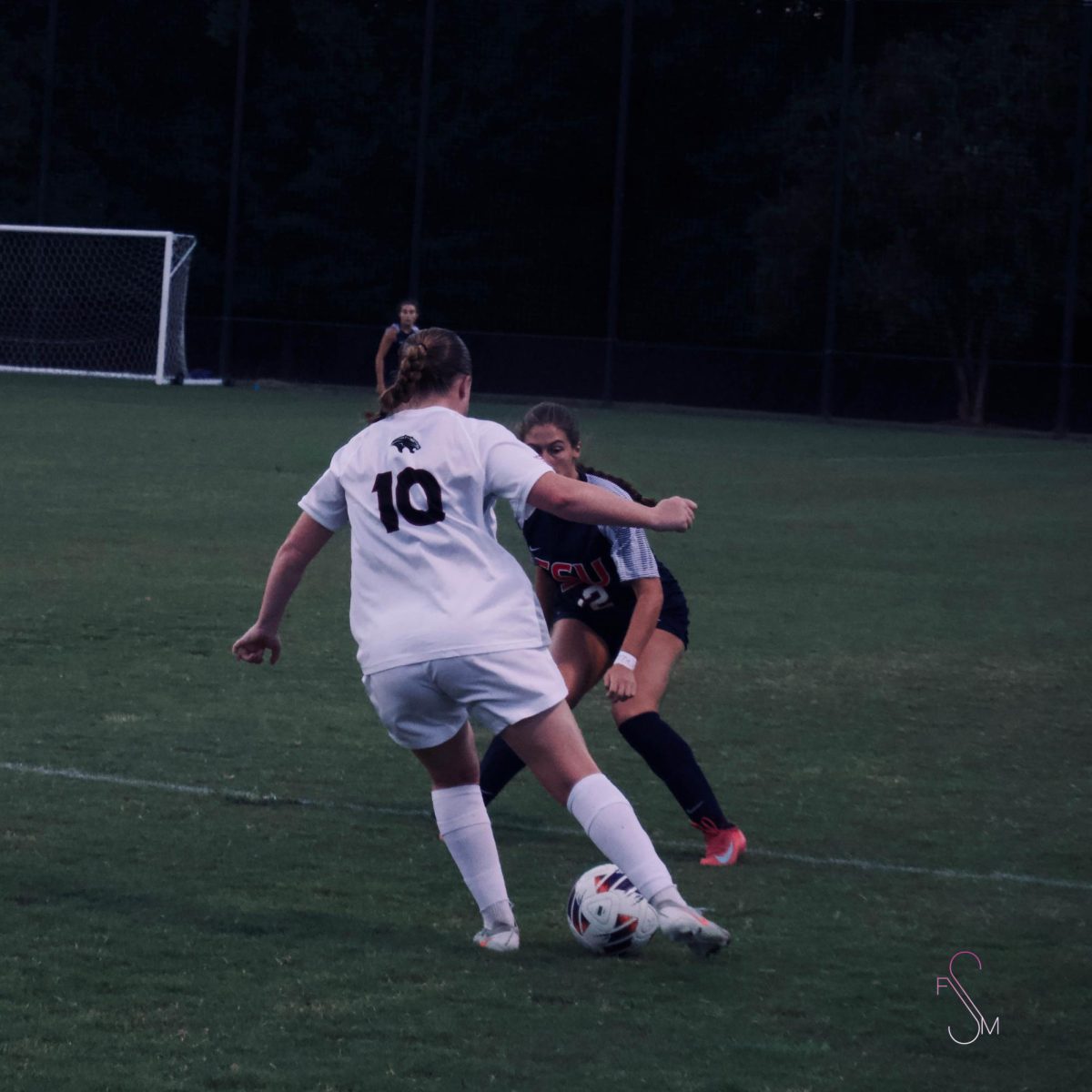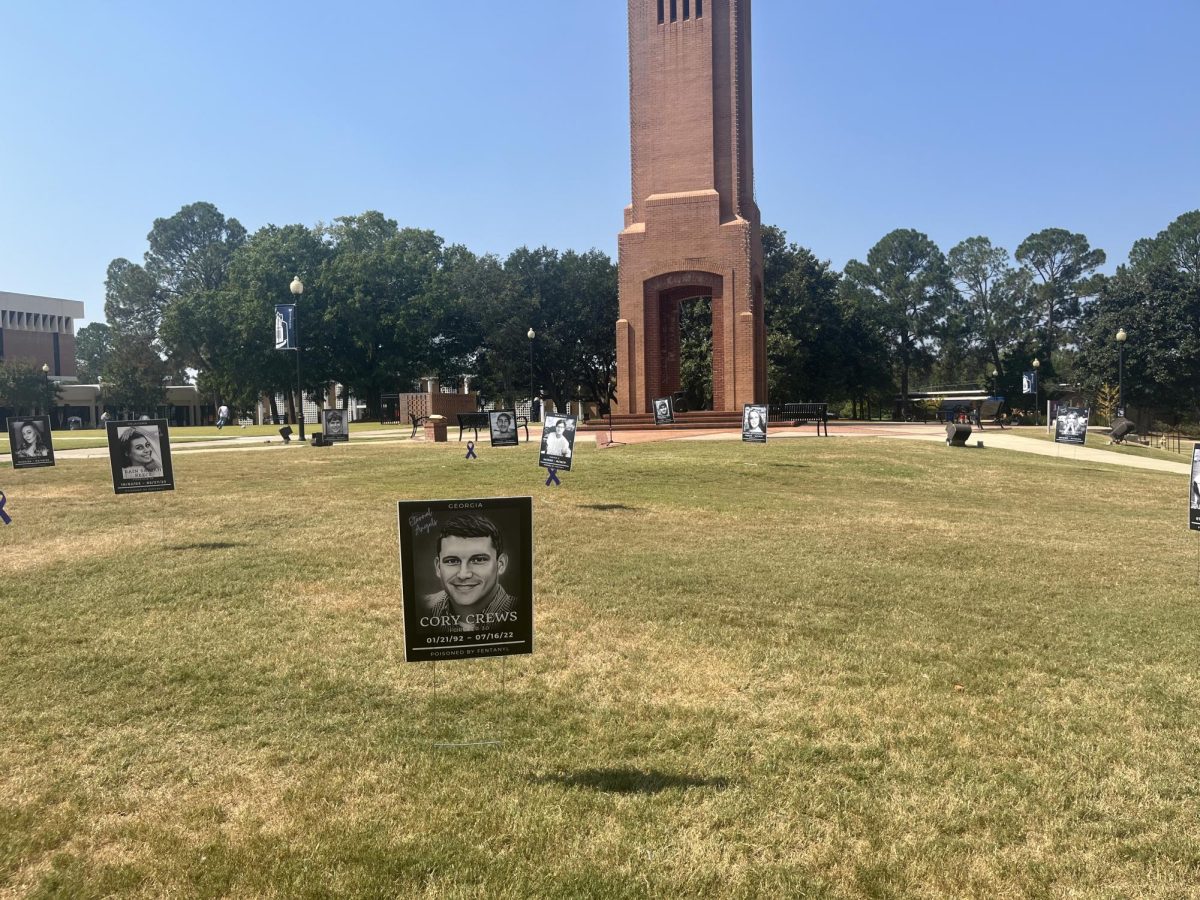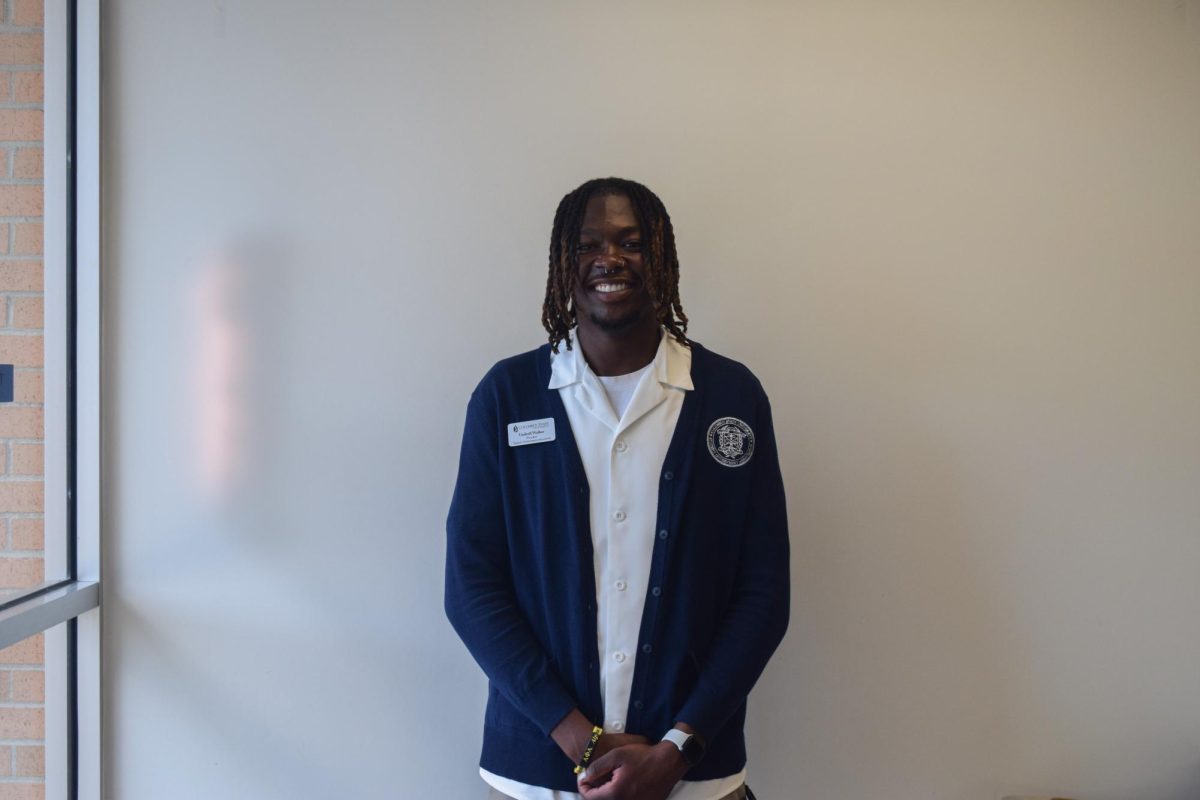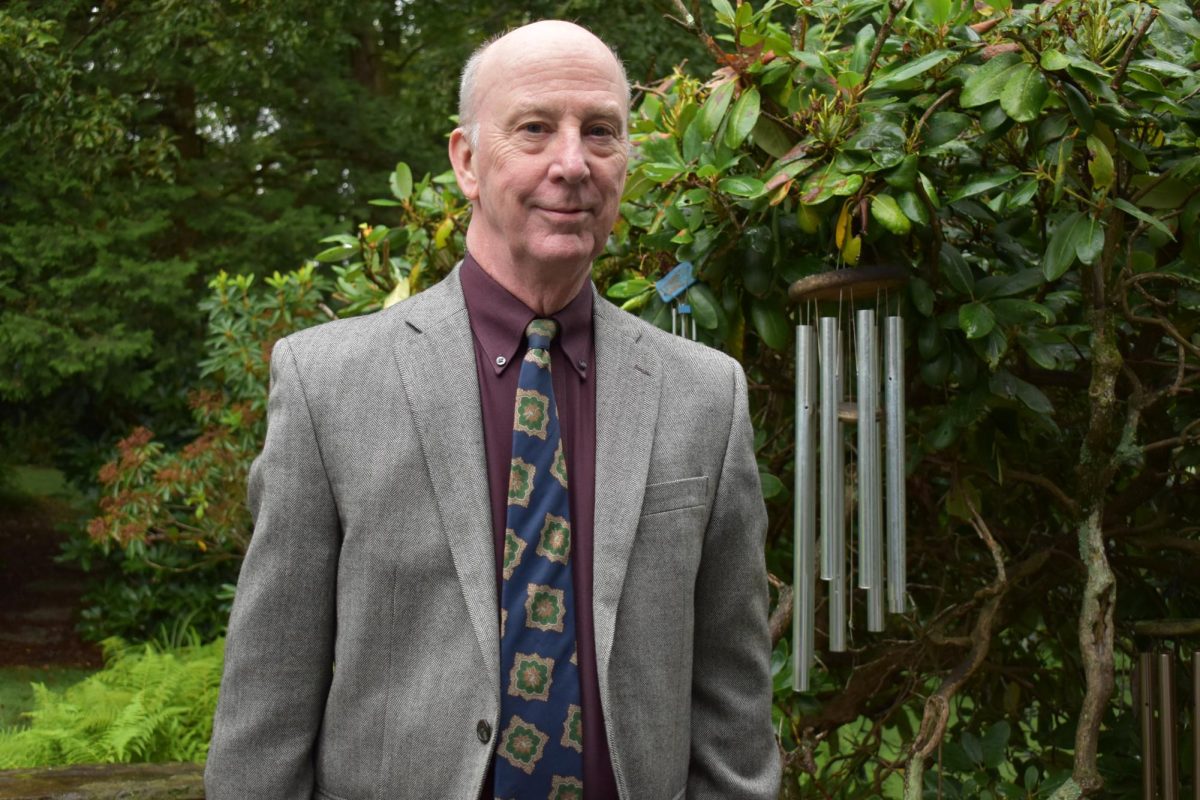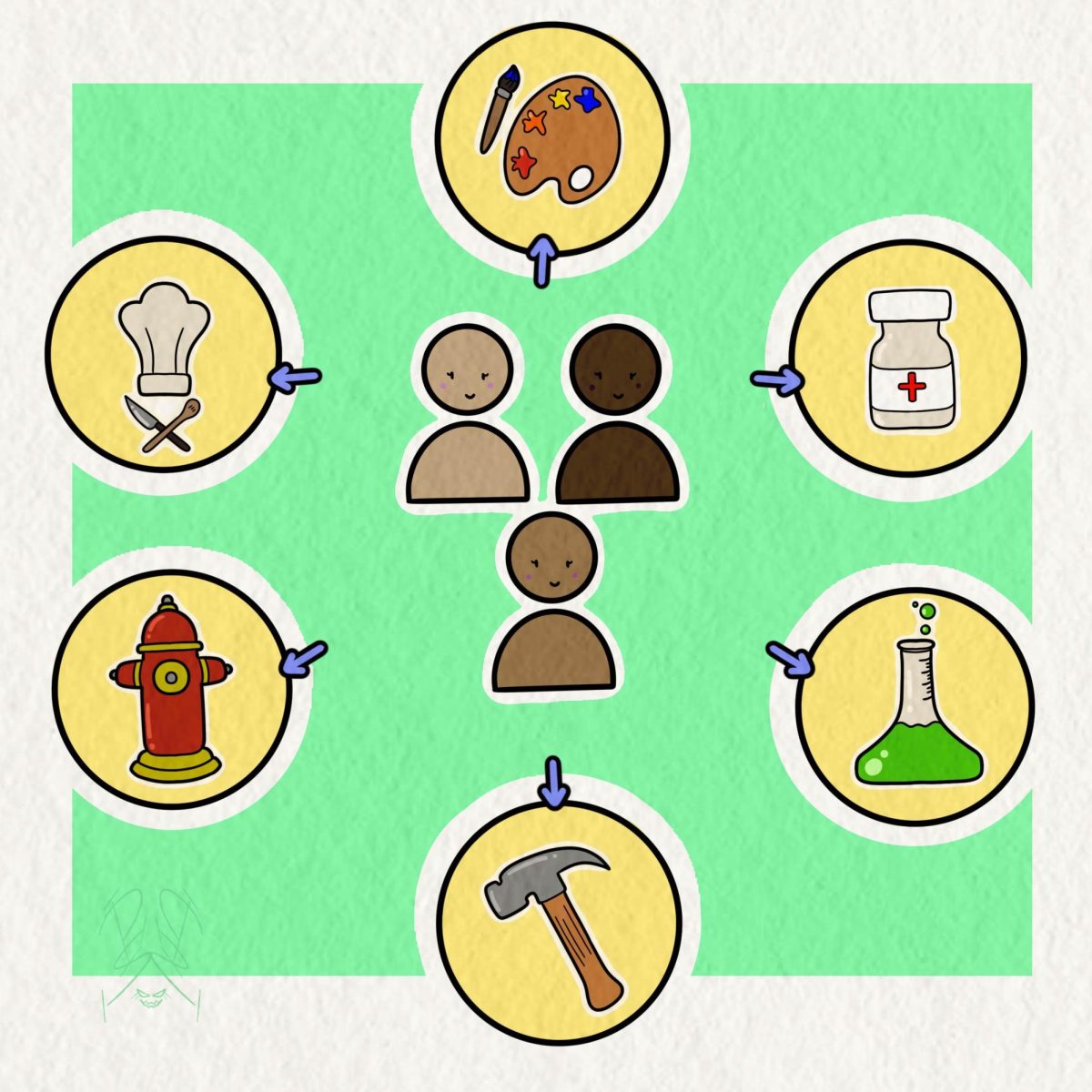I had the honor of interviewing Taylor Battles, who introduced herself as the “Wheeling Wonder” of CSU, and she’s “wheely” good at taking what life gives her and finding the light in the situation.
Robin: So first I’d like to ask you your name, age and profession or aspirations.
Taylor: Okay, so my name is Taylor. I am 23 and I’m a student at CSU.
Robin: So, I’m kind of interested in your personal issues in domestic life with managing your disability. You have a unique perspective on being disabled since it happened later on in your life, right?
Taylor: Yes.
Robin: Do you want to talk about that, figuring out you’re disabled?
Taylor: Yeah, yeah. So it is a little weird going into it, having started off not being disabled because there’s a lot of stuff that you’re used to doing, and when you suddenly can’t walk, you need to figure out other ways to do things that you used to do before. So like I used to go on hikes a lot, but wheeling a wheelchair through like all terrains sucks. So I had to figure out other ways to get myself out there and get active and get outside in nature so I could still do what I like to do and not be stuck inside.
Robin: Would you say going outside and being active with nature or being active outside of being just in your house is important to your mental health?
Taylor: I would say it very much is because depending on your disability, sometimes you’re unable to drive. So that’s really a lot less freedom when you can’t drive yourself and just get out and go wherever you want. So having the freedom to be able to wheel yourself anytime that you want to go somewhere, it gives you back a little bit of that freedom of being able to go where you want.
Robin: I guess not being able to drive also affects their social life a little.
Taylor: Yeah, ’cause I couldn’t drive before, but I could still walk anywhere I wanted to walk to. So it wasn’t as big of a deal to me because I was like, “I can still walk to the store, I can still walk up the street and see people.” So it wasn’t a big issue before, but then my legs gave up and so it was like, “oh, dang it.”
Robin: (laughs) Sorry, you’re just funny. You’re just so blase about your disability. And I think that’s interesting, ’cause I haven’t, I haven’t personally met a lot of people who are like, “damn, I’m disabled? Fuck it, we ball.”
Do you want to talk a little bit about your attitude towards that?
Taylor: Okay, yeah. So I get that quite a bit from family and friends and people that my family knows that are disabled, because I handle it with a different attitude. So, I try to find the brighter side or I would say the funnier side in certain situations to keep me optimistic about it.
The first thing I did when I got my wheelchair was, I tried not to be too upset about it. I taught myself tricks to entertain myself. So, I learned how to do donuts and how to pop wheelies in my wheelchair. And I got a funny license plate to put on the back of my wheelchair.
Because even though I’m gonna be in this chair for a long time and there’s gonna be the ups and downs of it, at least I found something about it to enjoy, to personalize it for me. To make it a part of me.
Robin: And I guess a part of making that part of your identity is that it changes how you view the world.
Taylor: Yeah, it definitely does, ’cause it’s been a process. It’s still very new for me. It’s still been about just a year. So getting used to the wheelchair, how things are different for you in public being in a wheelchair as well. You don’t — before the wheelchair, I didn’t notice how inaccessible certain locations around campus are, or the Columbus area in general.
Robin: Speaking of Columbus being in general inaccessible, do you want to talk about some of your experiences trying to navigate Columbus in a wheelchair?
Taylor: Downtown Columbus is the most uneven area ever. Whoever paved the road down here, they didn’t care. (laughs)
One second you’re level, the next thing you know you’re at an angle sideways. So it does make pushing a chair up a hill or just down the street even harder for me. And a lot of the area is cracked up and stuff, so the sidewalks, they’re lifted in odd places, and you get stuck somewhere ‘cause of it. So that does make it harder. And so me noticing that, I’m realizing, “Wow, this is very inaccessible for a lot of other people,” and you don’t notice these things about where you live until it becomes inaccessible for you or someone you know. I’ve had family members that didn’t notice how certain places where we live at are inaccessible too. And friends too pointed out, “I never realized that but now I’m helping you out I see stuff like that.”
Robin: I feel like I’ve mentioned that to you, too.
Taylor: Yeah, you have.
Well, something I’ve noticed specifically, and a lot of my family members have discovered together —you know how Walmart and a lot of grocery stores have scooters for people who don’t have one on them?
Robin: Right.
Taylor: Target does not provide that service.
Robin: At all?
Taylor: At all. They don’t have scooters at all in Target, Walmart does, but Target does not provide that service at all. So, I went to Target with my little sister, and we realized that they didn’t have that service and I couldn’t push my wheelchair around the whole Target. I was having issues that day with my muscles. At that point, I had to sit in a shopping cart and my sister had to push me through Target. It did suck that they couldn’t provide that because there’s lots of other people who need that who aren’t as limber as me or it’s not as easy for you to climb into a shopping cart. It was easy for me but so the people who just really need that and they can’t do their daily shopping because of that. If they can’t afford a scooter, they’re relying on this grocery store to have one for them.
Robin: Right. I also think you brought up something a little interesting. I feel I’m reading a little into or using that as a segue into another section of this interview. Like you mentioned, you’re a lot more limber. You actually have moments where you can walk around without using your wheelchair, and a lot of people kind of assume things because of that.
Taylor: Oh yeah, that’s a fun thing. Because I can’t drive, I have to take Lyfts or Ubers or the taxi services to school. The main question I start the day off with is “Is that wheelchair really for you?” Because they see me take it out my house and walk to the driveway. And they’re like, “So that wheelchair is not for you.” And I’m like, “No, I do need it. My muscles happen to be working right now, but, you know, catch me in the next 25 minutes and I’ll be on the ground.” They’re like, “Oh, so it is for you. You do need a wheelchair.”
I think that goes towards the idea that people don’t notice disabilities unless they can see it. How they talk about mental disabilities and eyesight and hearing, if you can’t visibly see that somebody is impaired, you don’t think that they’re impaired. If you see somebody just walk for a few seconds, but you don’t see the moments when they can’t walk at all, you don’t think they’re disabled.
Robin: I think that’s a really good point and a really good perspective on the situation. You never know. I mean, it’s the age-old saying, you never know what someone is going through.
Taylor: You don’t. You don’t get the full picture. You’re getting the book cover. You’re judging the book cover, basically.
Robin: Yeah, and even then, I see you with your wheelchair and out of your wheelchair, I never assume anything. But even then, I don’t get your full story. I don’t know everything you struggle with and I likely won’t ever know everything you struggle with because it’s a constant thing that’s going to affect your life. (long pause) Damn.
Taylor: (laughing) That took a heavy turn!
Robin: (laughing) Yeah, it did.
Taylor: Are you tearing up? Do you need a hug?
Robin: Oh, I’m not tearing up.
Taylor: (laughing) You’re being moved. I can’t move, but I’m like, do I need to start crying?
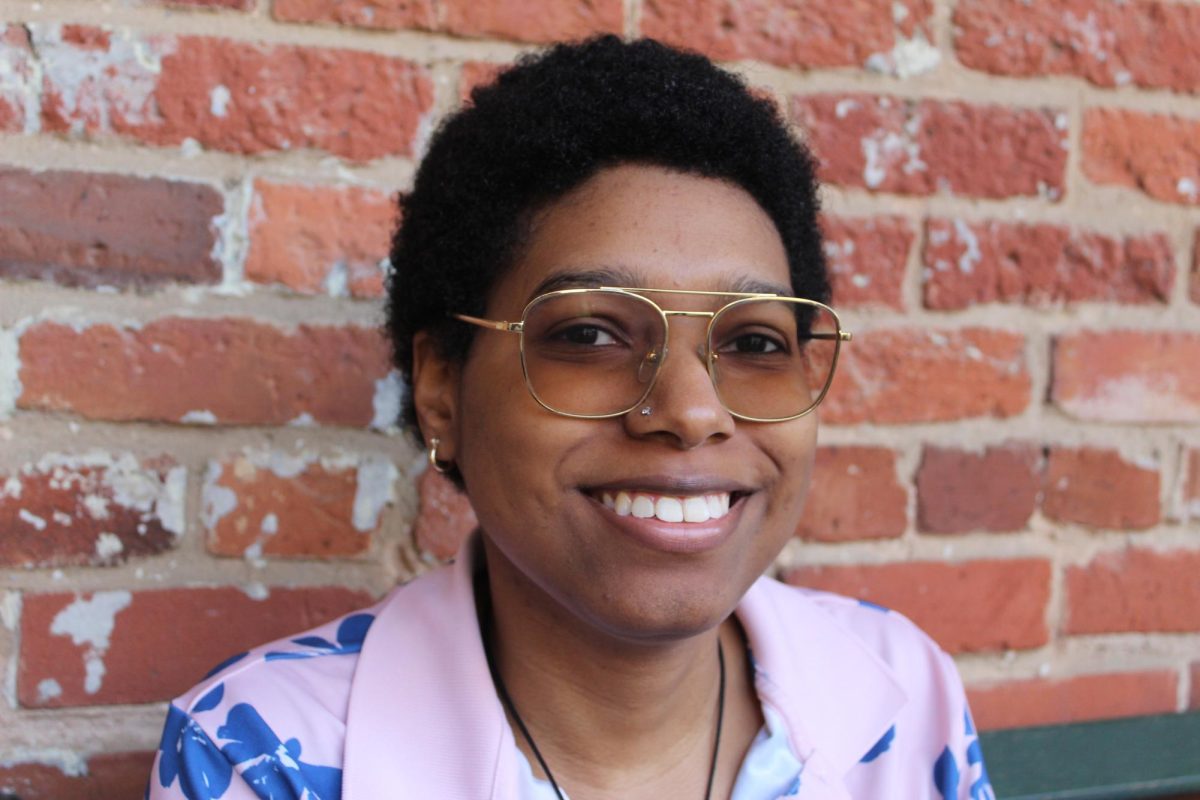
Robin: I know your disability affects you every day. That’s something I think most people who know you know, and I think some people can view that as negative, they think that dealing with a disability as being negative. Is there anything, I mean, I won’t say is there anything positive that you find within having a disability, but are there any, like, positive words you could say to encourage people who are struggling with disabilities?
Taylor: I would say just because you have a disability doesn’t mean you have to let it stop your world. Even though you can’t do things the same that you used to do before, we could always find another way for you to do it so you could still enjoy those same things.
So, like, you don’t have to give up doing things you enjoy. You don’t have to give up riding a bike, you don’t have to give up driving a car, or, like, going on hikes. There’s always an alternative. There’s always new inventions coming out to help people with disabilities get to do those same things.
Robin: And on that note, I think this is where we’ll end it today. Thank you, Taylor.
Taylor: Thank you.



